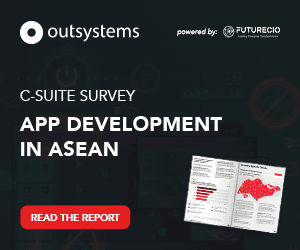Many smartphone applications, such as speech-to-text program and Google Assistant, are powered by Artificial Intelligence (AI). Companies also use AI to improve marketing strategies, recommend products and services to users, or even generate predictions about possible health risks for patients.
For AI systems to provide such insights, they need to be trained with relevant data such as a person’s purchasing habits or medical records, which can contain sensitive information about an individual. Once an AI model has been trained, it does not retain any of the original training data. This ensures that even if hackers pry open the internal workings of these AI programs, they could not harvest any sensitive information.
In recent years, security and privacy researchers have shown that AI models are vulnerable to inference attacks that enable hackers to extract sensitive information about training data. The attack involves hackers repeatedly asking the AI service to generate information and analysing the data for a pattern. Once they have determined the pattern, they can deduce if a specific type of data was used for training the AI program. Using these attacks, hackers can even reconstruct the original dataset that was most likely used to train the AI engine.
Such attacks are becoming a concern for many organisations globally. For instance, in 2009 similar attacks took place against the National Institutes of Health (NIH) in the United States, and NIH had to change their access policies to sensitive medical data.
Assistant Professor Reza Shokri from the National University of Singapore’s School of Computing (NUS Computing) explained, “Inference attacks are difficult to detect as the system just assumes the hacker is a regular user while supplying information. As such, companies currently have no way to know if their AI services are at risk because there are currently no full-fledged tools readily available.”
Machine Learning Privacy Meter to assess risk of attacks
To address this problem, Asst Prof Shokri and his team have developed a full-fledged open-source tool that can help companies determine if their AI services are vulnerable to such inference attacks.
The analysis, based on what is known as Membership Inference Attacks, aims at determining if a particular data record was part of the model’s training data. By simulating such attacks, the privacy analysis algorithm can quantify how much the model leaks about individual data records in its training set.
This reflects the risk of different attacks that try to reconstruct the dataset completely or partially. It generates extensive reports that, in particular, highlight the vulnerable areas in the training data that were used.
By analysing the result of the privacy analysis, the tool can provide a scorecard which details how accurately the attackers could identify the original datasets used for training. The scorecards can help organisations to identify weak spots in their datasets, and show the results of possible techniques that they can adopt to pre-emptively mitigate a possible Membership Inference Attack.
The NUS team coined this tool “Machine Learning Privacy Meter” (ML Privacy Meter), and the innovative breakthrough is the development of a standardised general attack formula. This general attack formula provides a framework for their AI algorithm properly test and quantifies various types of membership inference attacks.
The tool is based on the research led by the NUS team in the last three years. Before the development of this method, there was no standardised method to properly test and quantify the privacy risks of machine learning algorithms, which made it difficult to provide a tangible analysis.
“When building AI systems using sensitive data, organisations should ensure that the data processed in such systems are adequately protected. Our tool can help organisations perform internal privacy risk analysis or audits before deploying an AI system. Also, data protection regulations such as the General Data Protection Regulation mandate the need to assess the privacy risks to data when using machine learning. Our tool can aid companies in achieving regulatory compliance by generating reports for Data Protection Impact Assessments,” explained Asst Prof Shokri.




